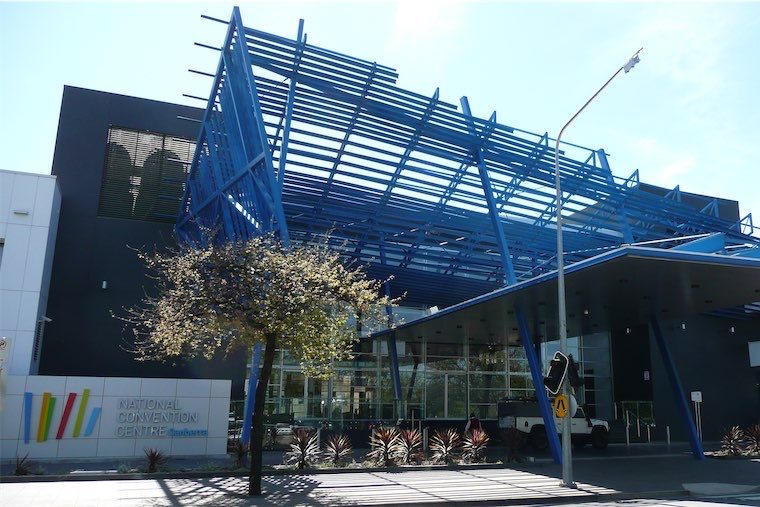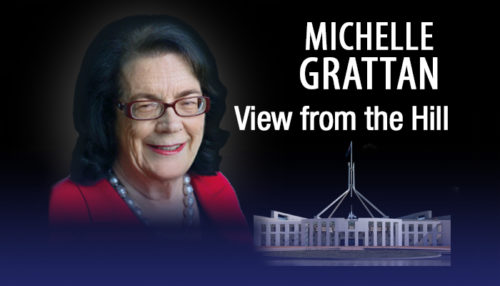FEDERAL politics seemed pretty rugged on the ousting of Prime Minister Julia Gillard, but how orderly does Australia look compared to politics in Egypt, with widespread violence and dozens of deaths?
Although just one factor, religion has played a significant role in Egypt. It is not so clear in Australia, with the loss of atheist Prime Minister Gillard leading to a struggle between a very religious Prime Minister Kevin Rudd and an even more religious Opposition Leader Tony Abbott.
Just as misogyny is one factor in the demise of Gillard, so too is the religious element. If even five per cent of voters refused to vote Labor because of strongly held religious views, it would generate a huge swing against Labor. In Egypt, the huge protests have largely been objecting to President Morsi attempting to change the constitution to provide himself with more power, to allow clerics to intervene in the lawmaking process and to leave minority groups without proper legal protection.
While millions have been protesting on the streets across Egypt, Australians debate whether or not Gillard should have been deposed and the extent to which her prime ministership, and the Labor Party, was constantly weakened and undermined by Rudd’s white-anting. Other issues such as the role of misogyny, the morality of an unmarried, atheist woman living with a bloke in our Lodge, and mistakes made by Gillard are debated around dinner tables, cafes and in the media along with the completely negative approach of Abbott’s opposition.
Cathy Alexander, writing recently in crikey.com.au, examined the influence of religion in Australian politics.
Her article started with the fuss about Labor MP Ed Husic being sworn in as Minister on a Koran. She went further arguing “the influence of Christianity on Parliament is far greater than Islam” and “whatever happened to the separation of Church and State”.
The influence of religion, she argues, is pervasive. Examples include commencement of sitting days with “The Lord’s Prayer”, evangelical religious service breakfasts “where alliances are formed” and having “unofficial parliamentary chaplains who have prayed with MPs to help them decide which way to vote on legislation”.
The main issue in Egypt may well be the constitutional question. However, Muslim Brotherhood leader Mohamed Badie addressed tens of thousands of cheering supporters who gathered near a mosque in Cairo and called on the army to recognise “Allahu Akbar” (God is great).
He vowed his movement would stay on Egypt’s streets in their millions until Mr Morsi is restored as president. The crowds were calling for the army to withdraw from the conflict and for the population to rise up in support of the deposed president. The military maintain that they are just ensuring a return to full democracy and will seek early elections.
Democratic systems are far from perfect. At the most basic level they are elected by the majority of the people and are usually very effective at looking after the majority. The challenge for democracies is not so much how to deal with the majority but rather how they manage and protect the minorities within the community. The constitutions of the world’s long-term democracies provide a buffer of rights to protect the minority.
The role of religion in the Egyptian conflict highlights why it is critical in Australia to develop a more effective separation of Church and State. The world has watched the religious influence of conflict in Syria as the civil war exacerbates the divide between Sunni and Shia factions of Islam killing thousands upon thousands in the process. The situation in Egypt is even more complex with liberals, Islamic factions and over seven million adherents to the Coptic Orthodox Church debating the constitutional decrees.
In Australia, the number of people that either declare they have no religion or do not practice a religion is rapidly growing. Our multi-cultural society is largely respectful of all religions as well as those who have no religion. This respect has yet to be fully reflected in our Federal Parliament.
However, at least Australians should count our blessings that we are not in the same situation as Syria or Egypt.
Who can be trusted?
In a world of spin and confusion, there’s never been a more important time to support independent journalism in Canberra.
If you trust our work online and want to enforce the power of independent voices, I invite you to make a small contribution.
Every dollar of support is invested back into our journalism to help keep citynews.com.au strong and free.
Thank you,
Ian Meikle, editor





Leave a Reply